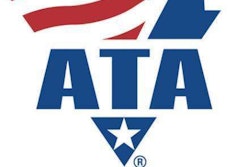
The Federal Motor Carrier Safety Administration announced today, June 7, that it is re-evaluating the appropriateness and effectiveness of the informal hearing procedure authorized under the agency’s Rules of Practice. Although proceedings where an informal hearing that already has been requested will continue to be processed under the Rules of Practice, FMCSA says it will not entertain any new requests for informal hearings pending its re-evaluation of the procedure.
In May 2005, FMCSA amended the Rules of Practice to establish, among other things, an informal hearing process as an option for adjudicating administrative enforcement proceedings. The informal hearing process was intended to provide expedited consideration of a civil penalty case by a neutral third party without the formalities attendant to a hearing before an administrative law judge. The informal hearing would not be on the transcribed record, and discovery would not be allowed; parties would have the opportunity to discuss their case and present testimony and evidence before the hearing.
FMCSA says it implemented informal hearings on a graduated basis in order to evaluate the efficacy of the process. In the first phase of implementation, FMCSA considered requests for informal hearings only from respondents in the Midwestern Service Center’s geographical area; in the second phase, FMCSA expanded eligibility to respondents in the Eastern Service Center’s geographical area.
Having evaluated the implementation of the informal hearing procedure, FMCSA says it has concerns about the appropriateness of the personnel the agency assigned to serve as hearing officers. The agency selected two FMCSA employees – one located in the Southern Service Center and one located in the Western Service Center – to serve as hearing officers. However, the Agency did not receive enough informal hearing requests to dedicate these employees as full-time hearing officers. As a result, these employees continued to carry out their existing responsibilities related to the implementation of the enforcement programs in their respective Service Center areas. Although informal hearings are not available to respondents located in the Southern and Western Service Centers, there was legitimate concern that FMCSA personnel involved in the agency’s enforcement program may not be considered sufficiently neutral.
FMCSA says its re-evaluation will include consideration of possible regulatory changes as well as implementation strategies. Five cases assigned to hearing officers still are awaiting informal hearings, and in 15 additional cases, claimants have consented to respondents’ informal hearing requests, but have not been assigned to a hearing officer. Also, in 13 additional cases, claimants in the Eastern and Midwestern Service Centers have objected to requests for informal hearings. FMCSA says it has not ruled on these objections yet because of its concerns regarding the informal hearing procedure.
In order to avoid further delaying the resolution of the 20 pending cases awaiting informal hearings or assignment of a hearing officer, FMCSA says it will assign these cases to one or more hearing officers not connected with the agency’s enforcement program who will be responsible for initiating and concluding the informal hearing process. The agency says it also will make it a priority to consider the pending objections to informal hearings and thus may assign additional cases to the hearing officer(s) as appropriate.
FMCSA says it has determined that no respondent has suffered substantive harm or prejudice as a result of disposition under the informal hearing option. Of the 11 cases assigned to hearing officers, only three finally were resolved under the informal hearing procedure, and in these cases, the hearing officer issued a final report recommending that the assistant administrator approve settlement agreements entered into by the parties; the assistant administrator accepted the recommendations, resulting in final disposition of these cases. With respect to the other eight cases, six are awaiting informal hearings following assignment of a hearing officer, one was settled before a specific hearing officer was assigned, and the final case is awaiting further action following issuance of the hearing officer’s report.











